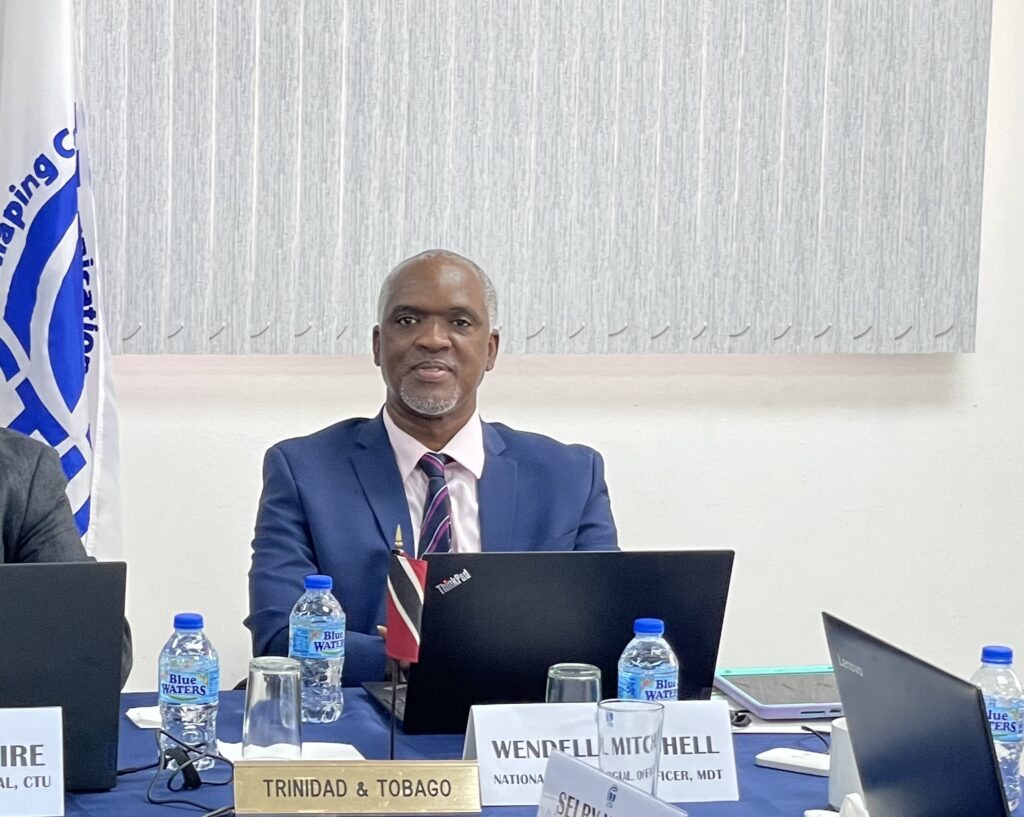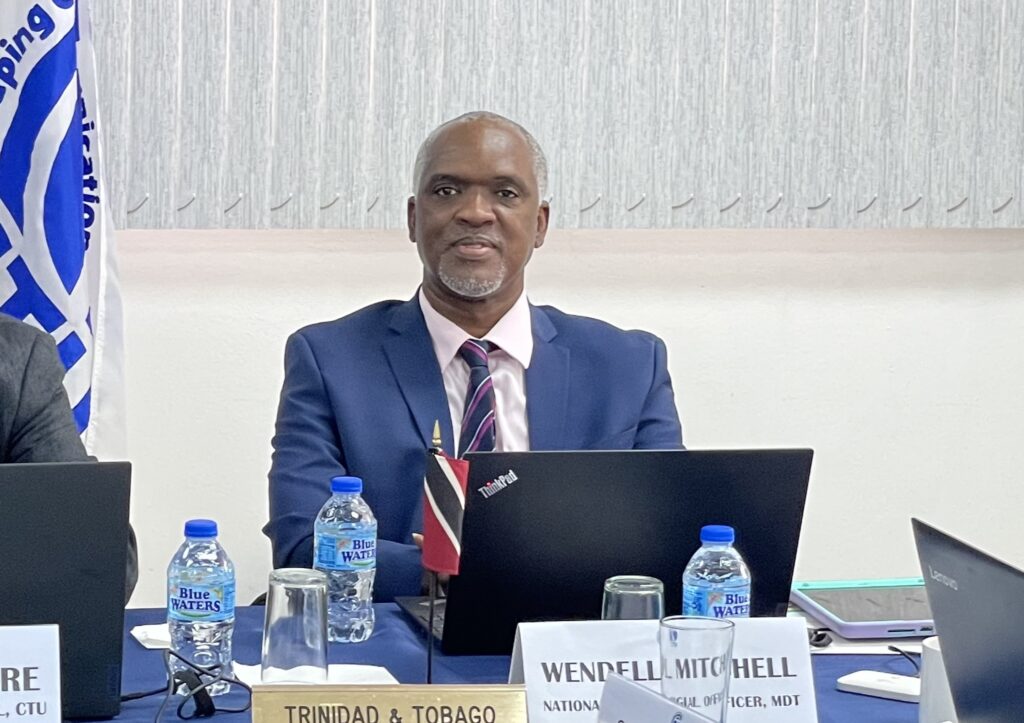
A very pleasant Good Morning to all of you.
Before I begin, I would like to convey Minister Bacchus’ sincere regrets for his absence owing to pressing Cabinet obligations. The words I speak are his.
Cognisant of the importance of the Executive Council in providing invaluable administrative oversight of the work being undertaken by the CTU, this 47th Meeting is a reminder to us all of the Union’s critical role in championing, supporting and in many instances, shining light on the imperative of digital transformation for the Region. This has been evidenced, in no uncertain terms, by the strides made by the CTU in 2022 and the significant achievements which have raised the Union’s profile as an organisation, and that of its Member States in the global ICT/DT arena. Notable among these achievements are:
- The signing of the Declaration of St Georges in February 2022 which paved the way for reduced intra-Caribbean roaming rates for citizens and residents. Discussions are continuing with network and content service providers on identifying common ground for the sustainability of state-of-the-art infrastructure and service provision that meet the needs and demands of citizens.
- Another milestone was the Region’s participation in the ITU Plenipotentiary Conference in which we demonstrated, that through coordination and preparation, we can act as a cohesive group, leverage or numbers and have our voices heard in international and multilateral forums.
On all of these areas, Minister Bacchus has asked that I underscore the yeoman service provided by the Secretariat under the astute leadership of SG Taylor and his Executive Team.
As the first statutory meeting of the year, EC 47 provides an opportunity for us to build on the successes of 2022, to set clear policy objectives and define actions that can guide the Union’s work in 2023. We are aware of what has to be addressed and that we will have to work collectively with focus, if there is to be meaningful traction in critical areas such as:
- Advancement of the mandate to create the CARICOM Single ICT Space: here, a herculean effort will be required to get this moving, but move we must if we are to ensure the Region and its citizens can thrive in the digital age. Harmonisation of policies, legislation and regulation with common frameworks for networks, services and delivery are the enabling building blocks of the Single ICT Space;
- Admittedly, far less progress has been made in considering the development of a single regional regulatory framework. Regulators have been engaged on this issue and they continue to evaluate the concept of a CARICOM ICT Regulatory Commission. Perhaps, a practical approach would need to allow for agreement on policy at the regional level with regulatory enforcement nationally.
Looking ahead, it is imperative that obstacles are tackled while building on achievements. As such, the ongoing work on harmonised spectrum management, championed by the Spectrum Management Task Force and Steering Committee, is one such accomplishment. The work of these two bodies will be instrumental in developing Caribbean positions for participation in the ITU’s World Radiocommunications Conference, WRC-23 in November.
It is noted that the EC47 meeting agenda includes updates on two (2) CARICOM-led initiatives that will directly impact the CTU as a CARICOM institution. Firstly, there is the review of the mandate and efficacy of 17 CARICOM Institutions, including the CTU. The recommendations emanating from the review will be submitted for the consideration of CARICOM’s Heads of Government.
The second initiative is the ICT Gap Analysis which, over the next 18 months, will examine, compare and report on ICT environments in Member States. This activity will provide useful inputs for the development of realistic and appropriate regional standards and in formulating specific national plans that can address the gaps identified.
Many of you will also be involved in the ICT Indicators Workshop scheduled for this afternoon and tomorrow. This too, is an area of importance for digital development in the region and such work will facilitate the development of common standards that can dovetail with CARICOM’s gap analysis. It is noted that the previous Chairman of the General Conference, the Honourable Melford Nicholas of Antigua and Barbuda had expressed strong support for the development of ICT indicators. Minister Bacchus has asked that the Secretariat be commended for its efforts in advancing this significant body of work.
Ladies and Gentlemen, the phrase ‘no man is an island’ is a cliché, yet it rings true for us as members of the CTU, an intergovernmental organisation comprised primarily of small island developing states. Every organ of the CTU must act as a cohesive collective that brings greater value than the sum of its individual constituents. Further, collaboration and partnerships must be among the key principles that serve as the foundation for the successful pursuit of our common regional ICT goals. In this vein, Trinidad and Tobago is committed to this course of action and to optimising the effectiveness of the CTU as CARICOM’s agile and responsive specialised agency for ICT and digital transformation.
In closing, and on behalf of Minister Bacchus and the Ministry of Digital Transformation, I wish you successful deliberations and the identification of meaningful outcomes that contribute to appropriate and effective solutions for shared benefit.
Thank You.


